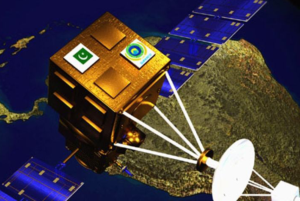
Pakistan is set to have its indigenously-built Earth observation satellite, PakTES-1A, as well as its Pakistan Remote Sensing Satellite (PRSS)-1, launched by China in July 2018 in a bid to catch up with its geopolitical rival, India.
The 285kg PakTES-1A observatory satellite will be fItted with sensors and cameras; it will remain stationary 610km in space, and its position relative to the sun will not change
The PRSS.-1 Remote Sensing Satellite (RSS), also set for launch, will be used to study various features of Earth, determine mineral deposits, and, with proper sensors, its RSS technology can also provide tools and data to study the impact of climate change, such as the recession of melting glaciers and greenhouse gasses. It can also assist with detecting forest fires and solve problems related to agriculture as well as forestry.
Pakistan acquired the navigation technology for the satellite from China in 2012.
Although Pakistan’s significant geopolitical rival, India, has been launching such observatory satellite since the 1970s, Pakistan’s former minister for science and technology views the development and launch of this satellite as both a proud moment and a positive step
“Unlike the complex, heavier and bigger communication satellites, observatory satellite is a simple technology,” Dr. Attaur Rehman told Dawn. “It can be used for a range of purposes … [and] it can also study electromagnetic waves and radiation emitted from Earth.”
Rehman also told Dawn that he believes Pakistan is still 25-30 years behind India in its satellite technology.





